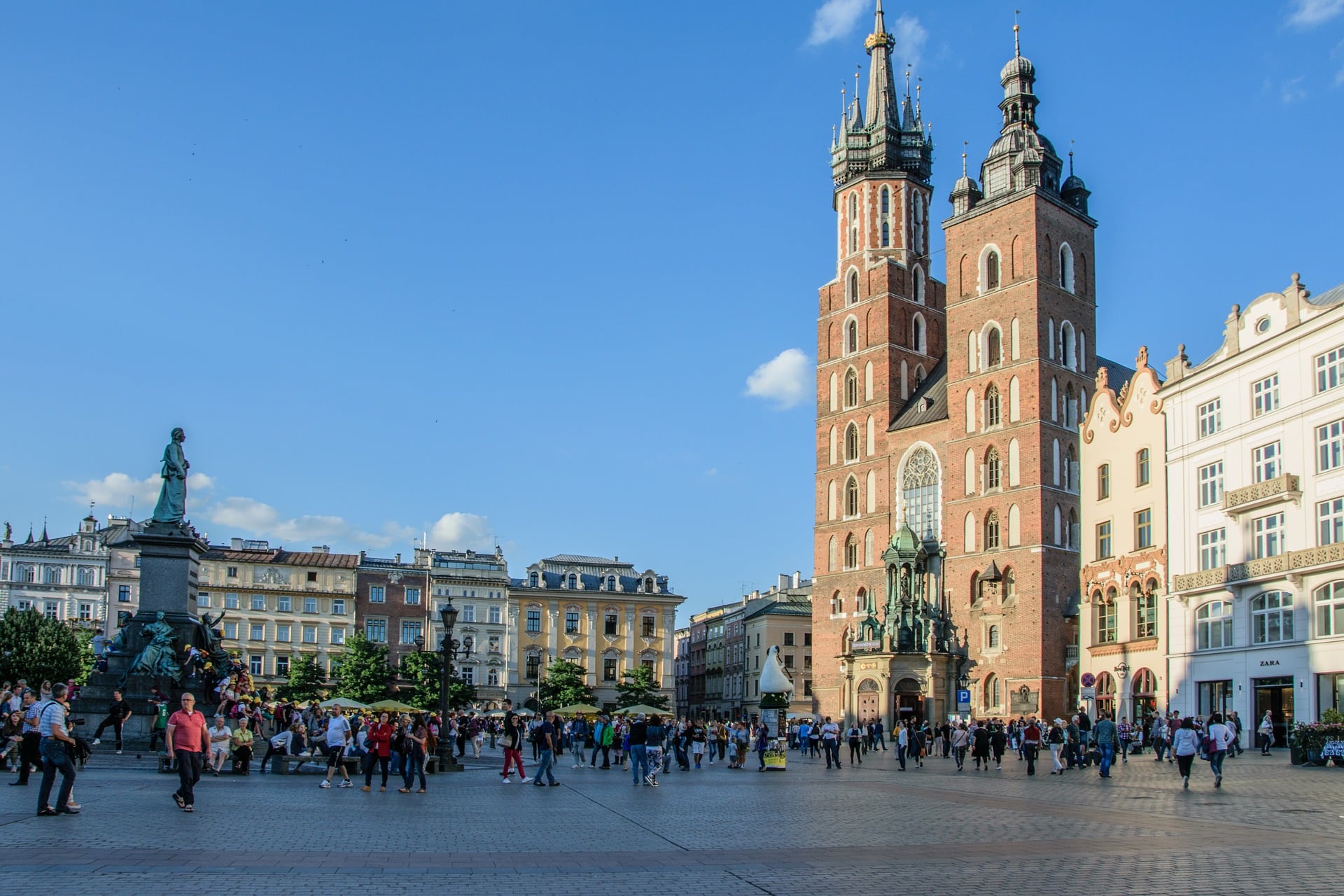Contents
Planning a trip to Kraków? You’ll notice the effortless and melodic way the locals say its name compared to the rest of us. But don’t fret! In our upcoming article, we’re diving into the tricks to mastering the word ‘Kraków’ in both Polish and English. We’ll even break down its British English counterpart, ‘Cracow’. Whether you’re looking to learn how to correctly pronounce Kraków in Polish or simply wish to improve your general linguistic skills, our pronunciation guide will help you articulate the name of this beautiful Polish city with confidence.
Mastering the Pronunciation of “Kraków” in Both Polish and English
The name Kraków, when pronounced correctly in Polish, sounds like [kra-kuhf], with a rolling ‘r’ and a stress on the first syllable. It is essential to note that consonants in Polish tend to sound a little harder than in English. The ‘w’ in Kraków is pronounced as ‘v’, which is a common trait in Polish pronounciation.
In contrast, the English pronunciation of Kraków, often referred to as ‘Cracow’, adopts a slightly different phonetic structure. British English speakers typically articulate the name as KRA-kow, with the ‘ow’ sounding similar to the ‘ow’ in ‘how’ or ‘now’. While this version strays from the original Polish pronunciation, it is widely accepted and understood in English-speaking countries. To pronounce Krakow with the finesse of a British native, one must pay attention to the subtleties of vowel sounds and the placement of stress within the word.
Essential Tips to Say “Krakow” Like a Native Speaker
To say ‘Krakow’ like a native speaker, it’s imperative to immerse oneself in the auditory experience of the language. Here are some examples of how you can improve your pronounciation:
- Listen to recordings of locals prononcing “Kraków”. There’s a plethora of educational materials for you to use on the Internet. For instance, YouTube stands as a veritable treasure trove for linguistic enthusiasts all over the world. Make sure that the audio is recorder by a real native Polish speaker for best results. Video also help since you’ll be able to see and mimic the jaw movements. If you can find a recording of an announcement inside an airport or bus, they’re recorder by professional voice-over artists so they could be a good place to start.
- If you have a Polish friend or acquaintance, don’t be shy to ask them for some pointers. They’re going to be ecstatic about your efforts to learn anything about the Polish language. You’ll be able to ask them any other questions that you have and who knows, maybe you’ll gain an even greater appreciation for the Polish language?
- Practice your diction. Since you’re not a native English speaker, there’s a high chance there are some sounds in the word “Krakow” you’re not used to. Find some excercises that would target the specific element you’re struggling with, like the rolling “r”, or the “-ów” suffix. Make sure to record yourself to check your progress and compare your results to the real pronounciation.
Understanding the Meaning Behind the Word “Kraków”
Delving into the etymology of ‘Kraków’ enriches the experience of learning its pronunciation, as it adds a layer of cultural and historical context to the word. The name itself is steeped in legend, with tales of a ruler named Krakus who is said to be the founder of Krakow. It is believed he has defeated the Wawel Dragon by coercing him to eat a sheep’s carcass filled with sulphur. This mythical origin story is a cornerstone of Poland’s folklore and is reflected in the city’s emblem. For English speakers and those learning the Polish language, understanding the significance of ‘Kraków’ extends beyond mere articulation; it is about connecting with the heart of Polish heritage. As we learn how to pronounce ‘Kraków’, we also pay homage to the city’s storied past and its enduring spirit.
FAQs
How can I use YouTube to improve my pronounciation of Kraków?
YouTube is an excellent resource for those looking to improve their pronunciation of Kraków. You can find numerous tutorials and videos where native speakers demonstrate the Polish pronunciation of the city’s name. By listening and repeating after the speakers, you can get a better grasp of the nuances in pronunciation. Additionally, many videos include a transcript and description section where you can read the phonetic spelling and leave comments to engage with the community or ask for further clarification.
Is there a difference between the English pronunciation of Kraków and Cracow?
Yes, there is a subtle difference between the English pronunciation of Kraków and Cracow. While Kraków is the Polish spelling and is pronounced more closely to KRAH-koo ([kra-kuhf]) in Polish, Cracow is the anglicized version and is typically pronounced as KRAH-cow in the UK. The latter is adapted to fit the phonological framework of English and is commonly used in English-speaking countries.
Can you provide a phonetic tip to help English speakers pronounce Kraków correctly?
For English speakers looking to pronounce Kraków with a Polish flair, a helpful phonetic tip is to focus on the rolling ‘r’ and the ‘w’ which is pronounced like a ‘v’. Try to stress the first syllable and keep the second syllable short and clipped, similar to the ‘oo’ in ‘book’. Remember, the key to mastering pronunciation is to listen to native speakers and practice consistently.
What is the meaning behind the word ‘Kraków’?
The meaning behind the word ‘Kraków’ is deeply rooted in Polish history and legend. It is said to be named after a mythical ruler, Krakus, who founded the city and defeated a dragon. This storied past contributes to the cultural significance of the city and adds depth to the act of learning its pronunciation. By understanding the meaning, learners can connect more profoundly with the heritage of Poland and its people.
